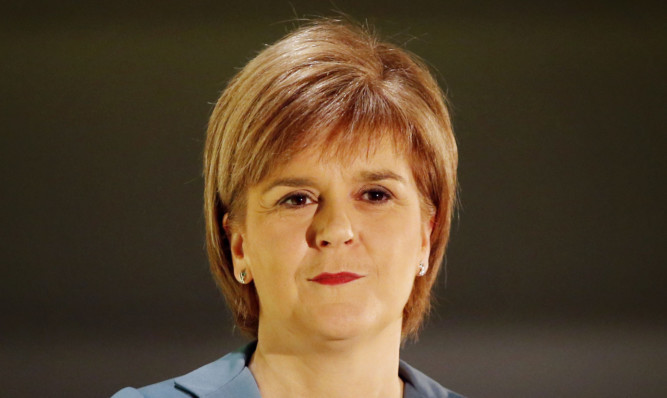The BBC of the future must respond to the different needs of the UK nations, Nicola Sturgeon will tell an audience at the Edinburgh International Television Festival.
Scotland’s First Minister will say the old model of public broadcasting no longer reflects the “varied and rich political and social realities of the UK” and the BBC Charter renewal process presents an opportunity for bold change.
The next Charter will form the basis for BBC operations over the next decade.
The SNP leader will suggest a series of reforms when she delivers the Alternative MacTaggart lecture at the festival, the first British politician to do so.
The renewed charter should see the BBC move to a federal structure, with separate governance boards for each of the home nations sitting under a UK-wide board, Ms Sturgeon will say.
She will also call for a distinct BBC Scotland TV channel as the best way of making a “wider, richer” range of content available to viewers in Scotland.
Ms Sturgeon will say: “The UK has changed dramatically since devolution, but broadcasters are still catching up with its consequences. And although that poses questions for all public service broadcasters, the issue is maybe most acute with the BBC.
“Scotland, the BBC and all the nations and regions of the UK have the right to expect something truly radical from the charter review. A tight financial settlement cannot be a reason not to do things differently.
“A BBC that puts forward a bold proposal for Scotland, for the nations and regions, and for the UK will have in us a strong and willing ally. A BBC that offers piecemeal solutions will fail to meet the demands or restore the trust of Scottish audiences.”
She will add: “Any BBC charter renewal which does not respond to the different needs of the nations and regions simply won’t be sustainable between now and 2027.
“That’s why the Scottish Government wants to build a consensus behind constructive change. We will encourage the widest possible level of debate within Scotland on charter renewal. And we will work with the UK Government and the BBC to achieve the best possible outcome for viewers in Scotland and across the UK.”
The BBC said it recognised a demand for greater representation and portrayal of Scottish audiences on BBC services.
A spokesman said: “Audiences across Scotland get great value from the licence fee, and are some of the highest users of BBC services.
“The licence fee funds much loved services across the UK – like BBC One and Radio Two – but also specific services like Radio Scotland and BBC Alba. Services for smaller audiences clearly cost more to provide, and that is why we spend more in the nations per head than the rest of the UK.
“The BBC’s funding has now been set for the next five years and this will mean cuts across the BBC. We will aim to protect spending in the nations so that content investment is cut less than in other parts of the BBC.
“We look forward to working with the Scottish Government on these issues, and to consulting with licence fee payers in Scotland about how they would like to see their licence fee spent.”
